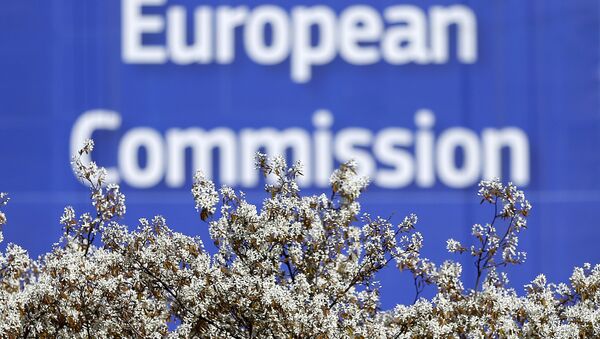The Panama Papers exposed how many public figures have been using the law firm Mossack Fonseca to move assets offshore in order to avoid paying taxes in EU member states. However, according to Transparency International, it is not just the rich and famous who have been caught out by the Panama Papers leak. Multinational companies are also using secret subsidiaries, complicated structures and tax havens to avoid public scrutiny.
The EU's new rules on #TaxTransparency are just window dressing after #PanamaPapers — https://t.co/cFZfChCRUy #CBCR pic.twitter.com/LIzH9l56K8
— Transparency Int. EU (@TI_EU) 12 April 2016
The European Commission will Tuesday (April 12) put forward proposals to make the largest corporations operating in the EU report their activities to tax administrations, in a system known as country-by-country reporting (CBCR). It follows a serious of rulings and investigations by the European Parliament and Commission.
#TaxTransparency — @JHillEU on public reporting requirements for largest companies operating in the EU https://t.co/LSMTcCVpfn
— European Commission (@EU_Commission) April 12, 2016
Jonathan Hill, EU Commissioner for Financial Stability, Financial Services and Capital Markets Union said:
"This is a carefully thought through but ambitious proposal for more transparency on tax. While our proposal on CBCR is not of course focused principally on the response to the Panama papers, there is an important connection between our continuing work on tax transparency and tax havens that we are building into the proposal."
.@JHillEU on #TaxTransparency —multinationals to publish key information on profits and where they pay their taxes https://t.co/96MT7wwni3
— European Commission (@EU_Commission) April 12, 2016
However, critics say the new tax arrangement — for multinationals with a total consolidated group revenue of at least US$847 million — will only involve passing tax information between member states' tax agencies and will not be made public or available to journalists.
Elena Gaita, Policy Officer on Corporate Transparency at Transparency International EU told Sputnik: "The Commission has squandered a golden opportunity to make companies more accountable. The last minute addition of tax havens smacks of window dressing. Companies will still be able to strike favorable deals with governments in other parts of the world without public scrutiny.
"It's baffling why the Commission has proposed a cumbersome and contentious process to create a list of tax havens when there is already a simpler solution. Full public country-by-country reporting applying to the whole world would produce better results. This proposal cannot be called public country-by-country reporting, if it does not include most of the world," Gaita told Sputnik.
Vague Criteria
Transparency International say the current proposals will allow EU companies to continue using tax havens and shell companies without anyone knowing about it. The draft proposal will allow companies to report all their financial data for operations outside the EU as one figure, leading to a lack of knowledge as to what companies were doing in tax havens across the world.
"Despite the unprecedented scale of the Panama Papers revelations, the Commission has come forward with a proposal that falls short of much-needed transparency. This is not public country-by-country reporting: companies will only have to make data available about their tax and profits in EU countries and some tax havens on a common 'blacklist' whose criteria remain vague. Many known tax havens, like Switzerland and Delaware, will simply not be covered," said Jan Willem Goudriaan, General Secretary European Federation of Public Service Unions.
"In the case of profit-shifting schemes such as those used by McDonald's, there will be no way of comparing profits made and taxes paid in, for example, France and the US. This proposal fails to give the big picture on global tax dodging," he said.



